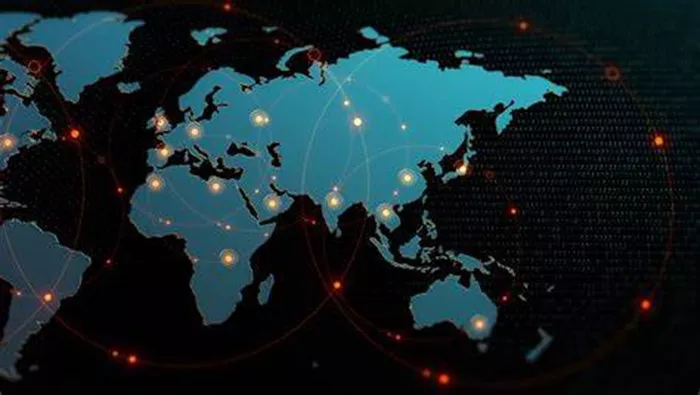The world has entered a state of “polycrisis,” characterized by the rapid convergence of environmental, technological, and social challenges, according to a recent report by the United Nations Environment Programme (UNEP). This polycrisis poses significant threats to Earth’s climate, biodiversity, pollution levels, and overall planetary health, the report warns.
The UNEP report identifies eight critical shifts, including intense competition for natural resources, the swift advancement of technologies like artificial intelligence (AI), mass forced displacement, and widening inequalities. These shifts are not only overlapping but are also intensifying each other, amplifying the polycrisis and its potential consequences.
Furthermore, the report outlines 18 “signals of change” that need close monitoring. These signals could trigger significant disruptions impacting planetary health and human well-being. Among the looming issues are the emergence of new infectious diseases linked to climate change, the deployment of geoengineering technologies to alter the climate, and the potential increase in areas becoming uninhabitable.
Converging Crises: A Threat to Human and Planetary Health
The report emphasizes the escalating pressures on existing environmental challenges, such as rapid climate change, rampant pollution, and biodiversity loss, all of which are interconnected with technological and social crises. The polycrisis, the report states, threatens not only the environment but also human health and well-being on a global scale.
“The main message from this report is that we are facing interconnected issues that require an integrated approach,” says Andrea Hinwood, UNEP’s chief scientist and a lead author of the report. “We need to ensure that we are addressing these problems in a holistic manner.”
The report highlights several emerging threats, including the ongoing devastation of natural ecosystems, global resource competition, misinformation, diminishing trust in institutions, mass displacement, and the rapid progress of AI. These factors, the report warns, could accelerate and synchronize the polycrisis, leading to unprecedented environmental and societal upheavals.
Signals of Change: The Need for Vigilance
Of the 280 “signals of change” identified by experts, the report singles out 18 that could have profound effects on planetary health and human well-being. These signals, which hold the potential for both negative and positive impacts, should be closely monitored, says Hinwood.
One significant signal is the thawing of Arctic permafrost, which could release harmful microbes due to climate change. “Thawing permafrost will release more methane, exacerbating global warming,” Hinwood explains. “But there’s also the risk of releasing pathogenic microbes, which could have severe consequences for human health, the environment, and agriculture.”
The report also highlights the potential deployment of solar radiation management (SRM) technologies, a controversial and largely untested geoengineering method designed to block the sun’s rays and mitigate climate change impacts. Although considered a “weak” signal, the environmental and social risks of SRM are substantial and not fully understood.
A Call for Innovative Solutions and Inclusive Governance
In light of these alarming signals, the report calls for a “new social contract” that redefines humanity’s relationship with nature, prioritizes well-being alongside economic growth, and includes diverse voices from local communities, Indigenous peoples, and youth. The report also stresses the importance of monitoring upcoming challenges through global data sharing and the need for agile and adaptive governance to navigate the polycrisis.
Hinwood advocates for setting shorter-term targets to address immediate threats, such as reducing methane emissions from oil, gas, and agriculture. “We have to be agile, flexible, and data-driven in our approach to assessing progress,” she says.
The report concludes with a call to action, emphasizing that while the polycrisis presents daunting challenges, it also offers opportunities. Addressing one interconnected problem could help solve others, providing a positive outlook for the future.
A Global Response Needed
While the UNEP report offers a comprehensive framework for addressing the polycrisis, experts argue that more explicit accountability is needed from powerful actors, including nation-states and multinational corporations, to influence the future trajectory for the common global good.
“The governance measures outlined in the report are crucial, but the real challenge lies in implementing practical programs at local, national, regional, and international levels,” says Michael Lawrence, a polycrisis research fellow at the Cascade Institute.
As the world faces a potential polycrisis marked by destabilizing signals of change, the need for global cooperation, innovative solutions, and inclusive decision-making has never been more urgent. The report serves as a wake-up call, urging humanity to act now to prevent the worst from coming to pass and to ensure a sustainable future for all.
[inline_related_posts title=”You Might Be Interested In” title_align=”left” style=”list” number=”6″ align=”none” ids=”11202,11197,11194″ by=”categories” orderby=”rand” order=”DESC” hide_thumb=”no” thumb_right=”no” views=”no” date=”yes” grid_columns=”2″ post_type=”” tax=””]


































